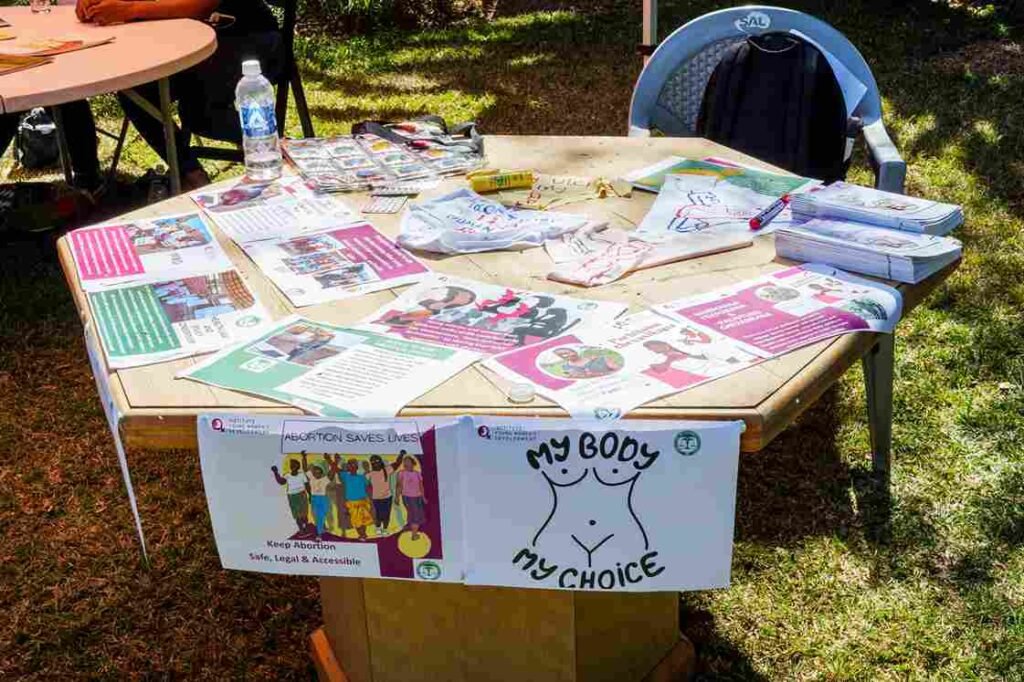Being an ally to marginalized communities plays a powerful role in building inclusive, affirming environments. True allies don’t just offer support—they actively challenge harmful systems, uplift marginalized voices, and commit to continuous learning.
This guide offers practical, everyday tools to help you be a better ally to queer+ individuals and communities in Zimbabwe and beyond. You don’t have to be perfect—you just have to be willing to listen, learn, and show up.
Educate Yourself
Understanding LGBTQIA+ identities, terminology, and issues is the first step toward meaningful allyship.
-
Sexual Orientation: Who someone is attracted to (e.g., lesbian, gay, bisexual, pansexual).
-
Gender Identity: How someone identifies in terms of gender (e.g., transgender, cisgender, nonbinary).
-
Gender Expression: How someone expresses gender outwardly (clothing, hair, behavior).
-
SOGIESC: Sexual Orientation, Gender Identity, Expression, and Sex Characteristics.
👉 Follow our social media pages for infographics and explainer content.
Use the Correct Name and Pronouns
-
Ask respectfully: If you don’t know someone’s pronouns, it’s okay to ask politely.
-
Respect their choices: If someone shares their pronouns, use them consistently.
-
Practice accountability: If you get it wrong, briefly apologize, correct yourself, and move on without making it a bigger issue.
Stand Up Against Discrimination and Prejudice
Silence is complicity. Use your voice when it’s safe to do so.
-
Call out harmful comments or jokes.
-
Challenge stereotypes: Microaggressions add up. Be the person who interrupts them.
-
Speak up in person or online: Your response can help create a safer space.
Respect Privacy and Boundaries
-
Don’t out anyone: Never share someone’s identity or experiences without their explicit consent.
-
Avoid invasive questions: Don’t ask about sex lives, surgeries, or trauma.
-
Skip the debate: For you it’s a discussion. For queer people, it’s often a fight for dignity.
Listen and Be Empathetic
-
Be present: Sometimes all someone needs is for you to listen with your full attention.
-
Acknowledge real struggles: Validate the impact of microaggressions, discrimination, or rejection.
-
Resist the urge to fix: Offer advice only when asked. Sometimes, holding space is enough.
Be Aware of Intersectionality
Queer identities do not exist in isolation.
-
Understand layered identities: Queer individuals also experience racism, classism, ableism, and religious stigma.
-
Respect unique struggles: A queer Black woman and a queer disabled man face different challenges. See each person in their fullness.
Support Mental Health and Well-Being
-
Check in regularly: Especially if your friend or family member is facing rejection or isolation.
-
Encourage affirming therapy: Mental health support should respect and uplift queer identities.
👉 See our other guides for mental health and wellness resources.
Don’t Assume or Generalize
-
Avoid stereotypes: Not all queer people behave, dress, or speak the same.
-
Respect self-definition: Terms like “genderqueer,” “nonbinary,” or “pansexual” may mean different things to different people. Let folks define themselves on their own terms.
Celebrate LGBTQIA+ Culture
-
Support queer creators: Read their books, watch their films, listen to their music, attend their shows.
-
Engage year-round: Pride is not just a season—it’s a lifelong commitment to solidarity.
-
Learn queer history: Know about Stonewall, the AIDS crisis, African queer movements, and more.
Be Humble and Keep Learning
-
Acknowledge your privilege: Don’t center yourself in LGBTQIA+ conversations.
-
Accept feedback: If someone tells you that you’ve hurt them—listen. Apologize, learn, and do better.
-
Stay curious: The journey of allyship is ongoing. Keep evolving.
Download the PDF version of this guide below.


